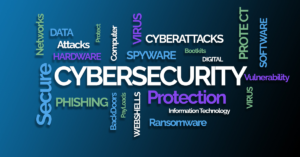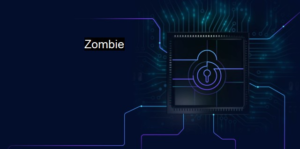
Understanding the Risks: Why Facebook Accounts are Targeted
Facebook stands as one of the most widely used social media platforms, with billions of users sharing personal information daily. This immense volume of data serves as a goldmine for hackers who seek to exploit vulnerabilities within the system. The inherent nature of social media encourages users to share not only their public profiles but also a plethora of private information, such as birthdays, addresses, and contact details. This wealth of personal data makes Facebook accounts particularly appealing targets for cybercriminals.
One of the primary reasons Facebook accounts are frequently hacked is because they hold valuable information that can be leveraged for identity theft or other malicious activities. Cybercriminals can use the data accessed through a breached account to impersonate users, access banking information, or even launch further attacks against the users’ contacts. Additionally, Facebook’s features often enable users to link their accounts with various other services, creating a broader web of interconnected data that can be exploited. With a compromised Facebook account, hackers can potentially infiltrate multiple online platforms, magnifying the impact of their breach.
Moreover, the sheer popularity of Facebook elevates the risk factor. As the platform is predominantly used by individuals and businesses alike, the larger the user base, the more appealing it becomes for hackers looking to capitalize on unsuspecting users. While Facebook employs advanced security measures, such as two-factor authentication, hackers continuously develop new tactics to circumvent these safeguards. These tactics may include phishing simulations or leveraging social engineering techniques to deceive users into disclosing their authentication credentials. Furthermore, misinformation surrounding account recovery processes can leave users vulnerable, further explaining why Facebook accounts are frequently targeted.
Overall, the popularity and wealth of personal information stored on Facebook create an environment fraught with security challenges. Recognizing the risks associated with account hacking is an essential step toward improving cybersecurity measures and protecting one’s social media privacy.
Recognizing Signs of a Compromised Account
In the realm of social media, particularly on platforms like Facebook, maintaining the security of your account is paramount. Recognizing signs that your account has been compromised can help mitigate potential damage. One of the most evident indicators of a hacked account is the presence of unrecognized login locations. Facebook provides a mechanism to review recent activity, including the geographical locations from which your profile has been accessed. If you notice logins from places you do not frequent, this might suggest unauthorized access.
Another red flag is altered profile information. A hacker may change your name, profile picture, or other personal details in an attempt to obscure their activity. Regularly reviewing your profile settings can help you detect any unauthorized changes swiftly. If you find discrepancies in your profile information that you did not initiate, it’s a strong indication that your privacy may have been compromised.
In addition to profile changes, be vigilant for unexpected messages sent from your account. If friends report receiving strange or spam-like messages appearing to originate from you, it may signify that someone else is controlling your account. Such messages might include links leading to phishing sites or requests for sensitive information that could further jeopardize your security.
Furthermore, if you notice that your account settings have been altered—such as changes to privacy settings, disabled two-factor authentication, or unfamiliar applications linked to your profile—these instances could indicate a breach in cyber security. Facebook has robust authentication methods designed to protect users, and any deviations from your set preferences should prompt immediate action to recover your account. Staying alert for these signs can significantly enhance your ability to safeguard your Facebook profile against potential hackers.
Creating a Strong Password: The First Line of Defense
In the ever-evolving landscape of cyber threats, establishing a robust password for your Facebook account stands as the foremost line of defense against unauthorized access. A strong password not only protects your account but also secures your personal information from potential hackers aiming to exploit weaknesses in social media security protocols.
To create an effective password, consider its length and complexity. Ideally, a password should comprise at least 12-16 characters. The longer the password, the harder it becomes for cyber criminals to crack it using brute-force methods. Incorporating a mix of uppercase and lowercase letters, numbers, and special characters further enhances your password’s resilience. For instance, a password such as “Green!Kangaroo2@FB” is significantly more secure than simpler alternatives like “password123.”
Another strategy to fortify your Facebook profile security is to use passphrases, which consist of a sequence of random words or a phrase combined with numbers and symbols. A memorable yet complex passphrase might be “BlueSky!Dance4@Underwater.” This approach not only strengthens your security but also reduces the likelihood of forgetting your password.
In addition to complexity and length, consider avoiding common words or phrases that could be easily guessed or discovered by hackers. Personal information such as birthdays, names of pets, or common sequences (like “123456”) should be eliminated, as they are easily accessible or predictable. Regularly updating your password, at least every six months, also reinforces your account’s security against ongoing threats.
Ultimately, a well-crafted password is crucial for maintaining the privacy and security of your Facebook account. By prioritizing length, complexity, and creativity in your password approach, you significantly diminish the risk of falling victim to cyber attacks, safeguarding both your public and private information within the social media sphere.
Enabling Two-Factor Authentication for Extra Security
In today’s digital landscape, social media platforms like Facebook have become primary targets for cyber threats, making account security more critical than ever. One effective way to bolster the security of your Facebook profile is by enabling Two-Factor Authentication (2FA). This additional layer of protection significantly reduces the likelihood of unauthorized access, even if a hacker obtains your password.
Two-Factor Authentication works by requiring a second form of verification, beyond your password, to access your account. When you log in, after entering your password, you will need to provide a verification code sent to your registered mobile number or generated by an authentication app. This process ensures that even if your password is compromised, your account remains secure against potential hackers.
To set up Two-Factor Authentication on your Facebook account, follow these straightforward steps. First, log in to your Facebook profile and navigate to the ‘Settings & Privacy’ section. From there, click on ‘Settings’, then select ‘Security and Login.’ You will see an option for ‘Two-Factor Authentication.’ Click on ‘Edit,’ and select the preferred method of authentication: a text message, authentication app, or a security key. Follow the prompts to finalize the setup.
After enabling 2FA, you can enhance your security further by reviewing your privacy settings. This allows you to control who can see your posts and profile information, reducing the risk of public exposure. Furthermore, keep your recovery options updated so you can quickly recover your account in case of any breaches. Overall, taking these steps reinforces your Facebook account against unauthorized access and helps safeguard your online presence in an increasingly interconnected world.
Regularly Reviewing Account Activity and Settings
To bolster your cyber security, it is crucial to regularly review your Facebook account activity and privacy settings. By doing so, you can identify any unauthorized access or unusual activities that may suggest your profile is at risk. Accessing your activity log is a straightforward process that allows you to scrutinize your recent interactions on the platform, such as posts, messages, and responses. By monitoring these actions, you can spot anything suspicious that may warrant further investigation.
To access your activity log, navigate to your profile and click on the “Activity Log” option, typically found in the settings menu. Here, you can view an organized list of all your activities, filtered by date and type of interaction. This log gives you a comprehensive overview of your actions on Facebook, helping you to understand what data is publicly visible and ensure that your private information is secure from potential hackers.
Additionally, it is essential to regularly check your privacy settings. Ensuring that your profile information is appropriately secured can prevent unauthorized individuals from accessing your data. Visit the settings menu and go to the “Privacy” section, where you can adjust who can see your posts, friend requests, and your profile details. Opt for stricter settings that prioritize your privacy, such as limiting visibility to your immediate friends or making your posts private. Furthermore, consider enabling two-factor authentication (2FA), which adds an extra layer of protection by requiring a secondary verification step during login attempts. This means that even if someone gains access to your password, they would also need a secondary authentication method to log in to your account.
By diligently reviewing your account activity and settings, you can maintain better control over your Facebook profile, significantly reducing the risk of cyber threats. Engaging in these best practices ensures that you are proactive in safeguarding your account and personal information against potential hackers.
Be Wary of Phishing Scams: Protecting Your Login Information
Phishing scams represent one of the most prevalent cyber threats that target social media users, including those on Facebook. Scammers employ various tactics to trick users into providing their login credentials or personal information. These scams often come in the form of emails, messages, or fake websites masquerading as legitimate Facebook pages. Recognizing these tactics is crucial for maintaining the security of your profile and account.
One common method used by cybercriminals is sending deceptive emails that appear to be from Facebook. These emails may alert users to suspicious account activity or prompt them to verify their login details. It is important to scrutinize any communication that claims to be from Facebook, as legitimate emails typically address users by their full name and do not request sensitive information via unsecured links. Always look for signs of authenticity, such as the sender’s email address and the presence of secure web links (those that begin with “https://”).
Another tactic involves direct messaging through social media platforms or other communication channels. Scammers might impersonate friends or officials, urging users to click on malicious links. When you receive messages from known contacts asking for information or urging immediate action, always confirm through other means before responding. It is also advisable to keep your friends list private, reducing the possibility of unauthorized access to your interactions.
If you encounter suspicious messages or emails, promptly report them to Facebook. This action not only assists in protecting your own privacy but also helps safeguard the wider community from potential threats. By staying vigilant and informed about phishing attempts, you can significantly enhance your cyber security and reduce the risks associated with cyber intrusions on your social media account.
Limiting Third-Party App Access to Your Account
Granting third-party applications access to your Facebook account can pose significant risks to your cyber security. Many social media users connect various apps to their profiles for convenience, but this can inadvertently expose personal information or create vulnerabilities that hackers can exploit. It is crucial to routinely assess the applications linked to your account to maintain high privacy standards.
To begin, navigate to your Facebook settings and locate the “Apps and Websites” section. Here, you will find a list of applications that are currently connected to your account. It is advisable to review each app carefully, noting their purpose and the permissions they require. Some applications may request access to seemingly unnecessary information, which can increase the likelihood of a security breach. By keeping only those applications that you actively use and trust, you can significantly reduce the risk of unauthorized access to your profile.
If you discover applications that you no longer use or those that appear suspicious, you should revoke their access immediately. This not only prevents these applications from accessing your account but also enhances your overall account security. Additionally, when selecting new applications to connect with your social media profile, it is essential to do thorough research. Look for applications with positive reviews and established reputations in the marketplace. Applications developed by credible organizations, particularly those with a focus on security and user privacy, are typically safer to use.
Moreover, consider enabling two-factor authentication for an extra layer of protection. This method requires a secondary verification step when logging into your Facebook account, further safeguarding it from potential hackers. By taking these proactive steps and limiting unnecessary app access, you can help ensure that your account remains secure and your personal information is protected.
Using Security Tools and Resources Provided by Facebook
Facebook has developed a suite of security tools designed to help users fortify their accounts against cyber threats. One of the most effective resources is the Security Checkup feature, which guides users through a series of steps to enhance account protection. By assessing the current settings and identifying potential vulnerabilities, this tool encourages users to review their privacy settings and update their authentication methods. Regularly utilizing the Security Checkup can significantly reduce the risk of falling victim to a social media hack.
Moreover, Facebook allows users to select trusted contacts. This feature can be vital for account recovery in the case of a compromised profile. Users can designate friends whom they trust, who can then assist in regaining access if the account becomes locked or is temporarily inaccessible due to strange activity. This social element adds an additional layer of privacy and security, ensuring that one’s connections can help restore access securely.
Another valuable security measure is the ability to set up two-factor authentication (2FA). By enabling 2FA, users will need to provide additional verification, such as a temporary code sent to a mobile device, whenever they attempt to log into their accounts from a new or unrecognized device. This added step harnesses both knowledge (password) and possession (mobile device), effectively creating a master lock on the account that fortifies against unauthorized access.
Facebook also offers resources like the Help Center and various guides that provide users with essential information on safeguarding their accounts. By educating themselves about potential vulnerabilities and how to effectively neutralize them, users can significantly improve their account security. Utilizing these tools not only protects individual profiles but reinforces the broader privacy landscape on social media platforms as well.
Staying Informed: Keeping Up with the Latest Security Practices
In the rapidly evolving landscape of cyber security, staying informed about the latest threats to social media accounts, particularly on platforms like Facebook, is crucial for user safety. Cyber threats are continuously adapting, which means that what may have been a secure practice in the past may not be effective today. Therefore, users must maintain a proactive approach to their online security by regularly updating their knowledge on potential risks and the best strategies for safeguarding their accounts.
To keep abreast of current security practices, users can rely on a variety of reputable sources. Official blogs from Facebook offer up-to-date information regarding their security protocols and any potential vulnerabilities that might affect user profiles. Additionally, following technology news websites and cyber security blogs can provide insights into emerging threats and techniques being utilized by hackers. For example, sites like Krebs on Security or the Electronic Frontier Foundation often publish articles that not only highlight threats but also offer practical advice on protecting one’s online presence.
Forums and online communities can also be invaluable for sharing experiences and strategies related to cyber security. Engaging in discussions on platforms such as Reddit or specialized forums can help users learn from the experiences of others who have faced similar security challenges. Moreover, subscribing to newsletters focused on cyber security can serve as a reminder to review personal account settings and privacy practices regularly, ensuring that the appropriate security measures—like two-factor authentication—are implemented.
In conclusion, being well-informed is vital to maintaining the integrity of your Facebook account against potential hacking attempts. By leveraging the resources available and engaging with the community, users can remain vigilant and proactive in their approach to cyber security, thereby enhancing their experience on social media while prioritizing the safety of their private information.





